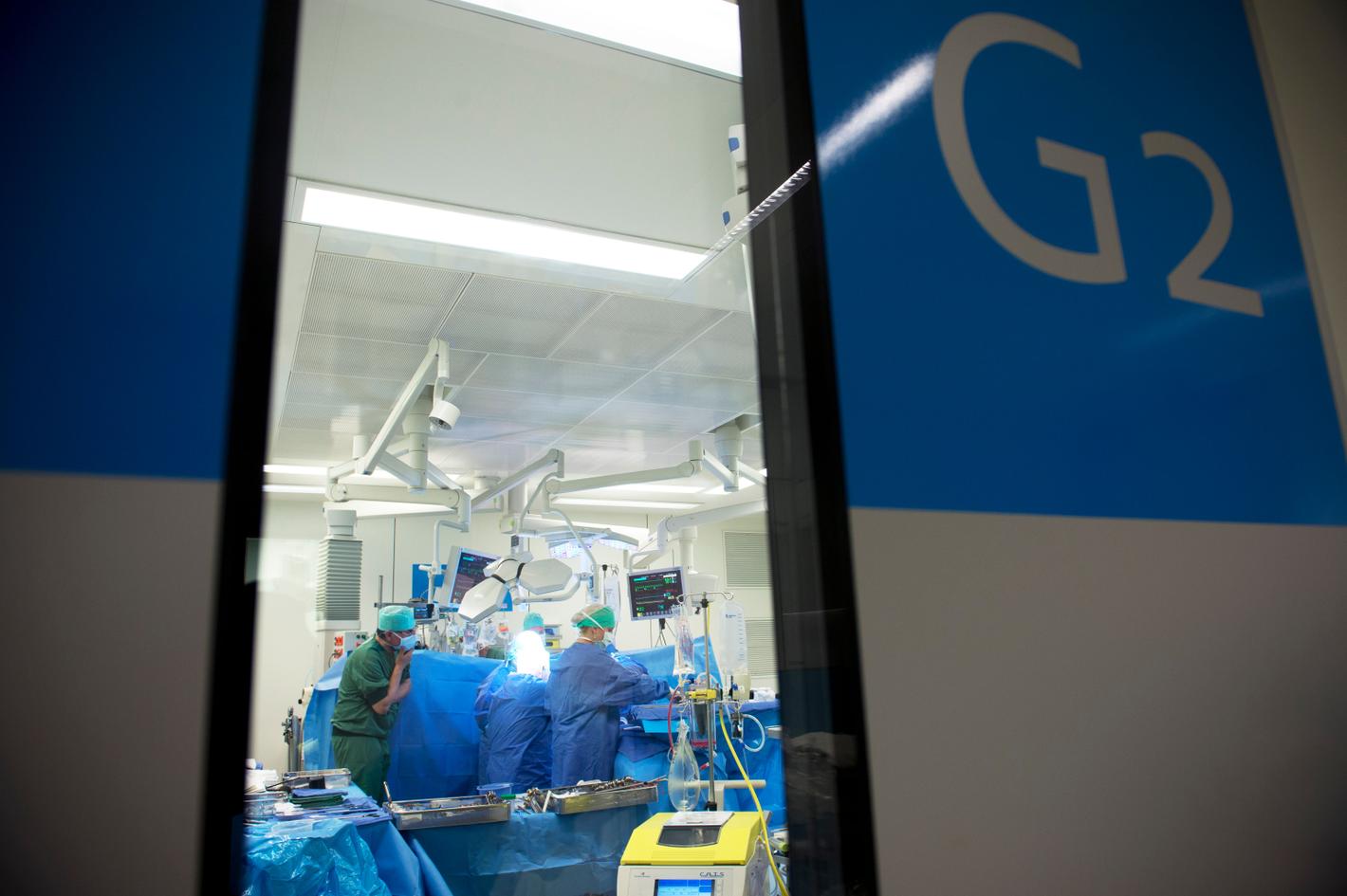As a result of the corona pandemic the world’s health care system has come under pressure. This results in a fair number of new challenges as well as unanswered questions, including for transplant surgery. Because the increasing infection risk more future potential organ donors will have had an infection. For transplant surgeons this brings two important questions to the fore: what is the risk of passing on the infection from organ donor to organ recipient? And does COVID-19 cause irreversible damage to the lungs, making them unsuitable for transplantation?
When an organ donor dies, he is always screened for SARS-CoV-2 and the result has to be negative before he can donate his organs for transplantation. However, a negative test does not rule out that there are no remnants of the virus left deep in the lungs. After a transplant, viral remnants can trigger a new infection in the recipient. Such an infection is potentially very dangerous, because the patient will receive medication to suppress the immune system after the transplant, making him extra vulnerable for infections. Furthermore, research has shown that COVID-19 can have permanent consequences on the lung quality as a result of infections with lung scarring.

Successful transplantation
The recent lung transplant at UZ Leuven provides a first reassuring answer to the question whether the organs of patients after a COVID-19 infection are still suitable for transplantation. The lungs of the deceased organ donor were, as is customary for each transplant, thoroughly screened to assess whether they qualified for transplantation. The lung function of the organ donor was very good and a CT-scan did not show any signs of lung damage. The surgeons, pulmonologists and virologists concerned decided that the risk for the recipient of the lungs was minimal. Leaving the patient on the waiting list would have been a much larger risk.
Prof. dr. Laurens Ceulemans, lung transplant surgeon at UZ Leuven: “The transplant went well and the recipient of the lungs tested negative for the coronavirus afterwards. There were no complications and after a month in hospital the patient could return home in good health. Three months after the operation, the patient is doing extremely well: the lung function is excellent and the CT-scan does not show any lung abnormalities.”
It is promising to see that, in these harsh COVID-19 times, lungs can recover sufficiently to even qualify for a transplantation and to give a patient a second chance of life.Prof. dr. Laurens Ceulemans

World-wide impact
The description of the transplantation was published in the renowned journal The Lancet Respiratory Medicine. According to the latest information, this is the first report of a successful lung transplant of a donor that experienced COVID-19. Prof. dr. Laurens Ceulemans: “The successful surgery proves that carefully selected lungs can be transplanted safely after a SARS-CoV-2 infection. It is also promising to see that, in these harsh COVID-19 times, lungs can recover sufficiently to even qualify for a transplantation and to give a patient a second chance of life. Further follow-up is obviously required which is why we’re calling on other transplant teams to share their findings on organ transplantations of ex-COVID-19 patients.”
The lung transplant at UZ Leuven was performed by a multidisciplinary team, led by prof. dr. Laurens Ceulemans, lung transplant surgeon and prof. dr. Robin Vos, pulmonologist. With more than 70 lung transplants annually, UZ Leuven is one of the biggest lung transplant centres in Europe. Belgian legislation on organ donation provides strict anonymity between organ donors and organ recipients, which makes it impossible to speak to the patient concerned.
Read the published article in The Lancet Respiratory Medicine
Read more about lung transplants in UZ Leuven (in Dutch)
Publication in The Lancet
This article is part of the Annual report 2020
- Transplant kidney survival rate improves with new method of transportation
- New app guides healthcare workers through oral anti-cancer therapy
- Cancer during pregnancy has no serious impact on the child’s brain development